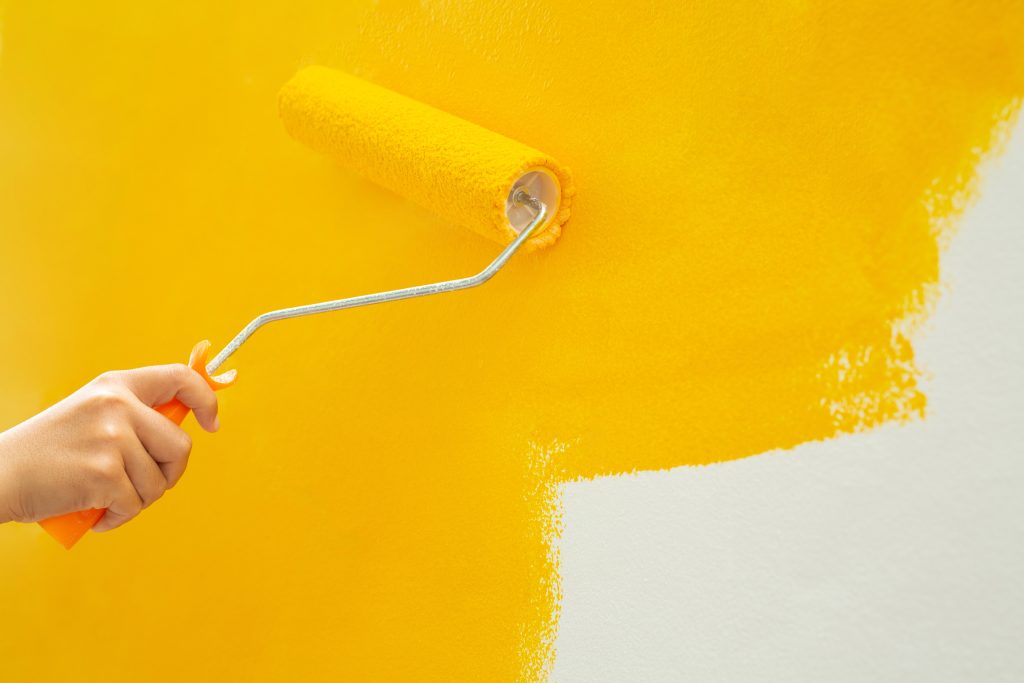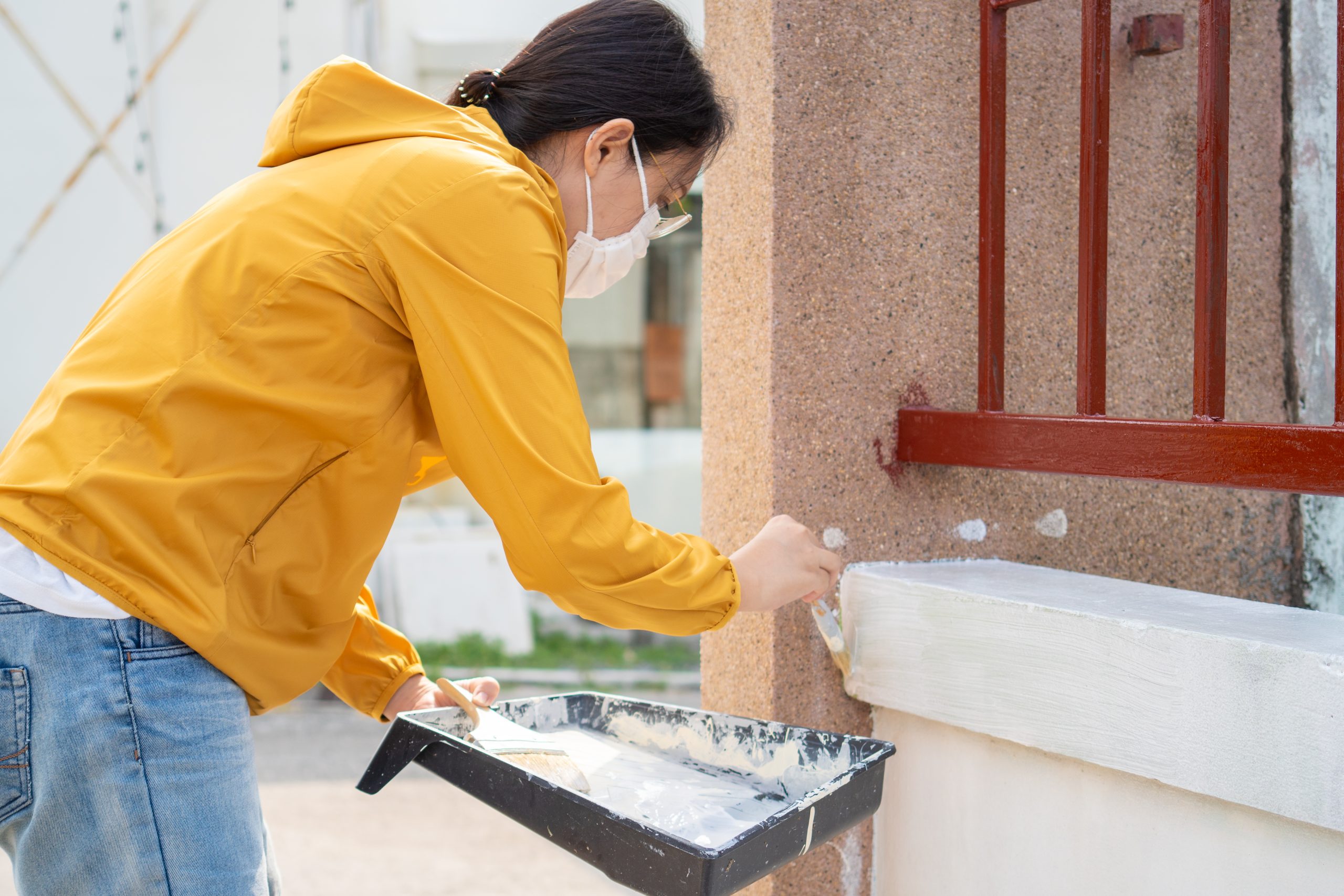Can You Use Interior Paint Outside? Ultimate Guide in 2024
You may love the color and texture of paint specifically made for interior use, and you want to use it on the outside. It’s one of the critical topics discussed among each of the house owners and even among painters. Hence, the question is can you use interior paint outside? The straightforward answer is NO.
The reason is that interior paint is not designed for outdoor usage. It cannot bear the outdoor environment, including UV rays, sunlight, chemicals, and rain exposure. Additionally, interior paint is not durable if used on outdoor walls, furniture, and other items.

Can You Use Interior Paint Outside in Some Ways?
Still, some people ask if there is any way to use interior paint for the outside. Here I provided complete information on how can You Use Interior Paint Outside. Before going through the process, you should know what interior paint is and its characteristics.
Down in this post, you will learn how to use interior paint outside and how to make interior paint into exterior paint.
What Is Interior Paint?
Interior paints (inside house paint) are made explicitly for internal walls and furniture. Their chemistry is different from the external paints, and these paints cannot withstand heavy snowfall, rain, or sun rays. However, they can withstand the internal lighting and the subjects they touch daily. This subject may be a chemical to clean a painted wall or any other cloth. Hence, interior paints can’t bear harsh environmental conditions.
Talking about the chemical nature, these paints are made up of liquid (mostly water), pigments, additives, and binders. These substances except water are the main reasons which make them different from the external paints. Additionally, the chemicals used in making these paints are low volatile. High VOC is not suitable for the health of humans.
In my experience, Interior paints are mostly water-based, acrylic-based, oil-based, or latex-based. Water and latex-based paints are more adhesive and robust. They can work for a long time without damaging the quality of anything where these are used.
Some professionals prefer to use all these paints separately. However, some also recommend to use them simultaneously. For example, if you want to increase the shine of the walls or furniture, you can use all paints by mixing them. In this regard, you must make sure that the color of all paints is similar.
On the other hand, some people also recommend using paint after paint. For example, if you have just applied oil-based paint and want to apply latex-based paint after some time, I highly recommend doing so. Some paints are specifically made for interior and exterior usage called indoor outdoor paint.
There is some more information on paints in this post regarding their bases.
Water-Based Paints- Clear Coat Interior Paint
Those paints, primarily based on the pigments and binders, come in this category. Another name for water-based paints is latex-based paints which offer low volatility features. Here are some other characteristics of latex-based paints:

Oil-Based Paints- Best Quality Indoor Paint
As the name represents, these paints are primarily based on natural oils, including soybean or Tung. Moreover, some paints are based on synthetic alkyds. They also have different pigments, binders, resins, and solvents, making them more adhesive.
The main factor differentiating them from other paints is the availability of high-VOC substances. Here are some features of these paints
Due to these features, I recommend using these paints where you don’t have a regular intact. Similarly, some outdoor latex paints are useful for interior painting.

Pigments, Binders, and Their Importance in Painting
As pigments and binders are essential parts of each painting, let’s quickly view these terms. Additionally, I will let you know how this helps make paint effective.
Pigments
Pigments are substances that offer specific color to a paint which may be natural or synthetic. The natural pigments in these paints are used by extracting them from plants or animals. Natural pigments are also organic pigments which are more beneficial than synthetic pigments.
An organic pigment is better able to blend and mix 100% purely with any surface without any blender. These pigments are primarily available in dark colors.
However, synthetic pigments are made by humans using different synthetic substances. These are inorganic pigments and are less beneficial than organic pigments. All the white pigments are inorganic pigments with an insignificant proportion of titanium dioxide.
Binders
Binders are polymers of plastic that work with pigments and help create a better texture. They assist in holding up the pigments on the different surfaces.
When binders are combined with the pigments, paint becomes better able to absorb on any surface and becomes more durable. Some oil paints have binders, but these are parts of water-based paints in the most significant proportion.
How do you use Interior Paint Outside?
As I mentioned above it’s not good to use interior paint outside. However, most people still want to use this paint outside for multiple reasons. Some of the reasons are given below:
Here is now a complete method and some tips on how to use interior paint on outside walls and surfaces
Note: keep in mind that using this paint outside does not mean that now you are free to paint the outside areas. However, you need to repaint the walls and surfaces each year or after realizing the need for a repaint. Some people are curious about how long interior paint lasts; it depends upon paint type and the surface.What Happens if You Use Interior Paint Outside?
Most people ask about what happens if I accidentally use interior paint outside. The main effect is that the paint will not work for many years; instead, you have to repaint after a few months.
Moreover, interior paint is not the best as it cannot withstand the external environment, including rays and light. So, the paint may be defiant or less shiny after high exposure to sunlight and rain.
However, don’t worry if you have used interior paint for the outside. There are many ways to cope with the situation. First of all, if you are at the beginning of the painting process, you can stop using paint or use a high-quality sealer for better results. So if you a question can I use interior paint outside, the answer is yes.
Indoor wood paint is another debate among those who want to paint their outdoor furniture. The recommendations and tips are the same as I described above. Hopefully, now you understand enough about what happens if you use interior paint outside.
Note: Using a mildew resistant additive for paint is helpful to make the surface shinier and durable.Using Interior Paint Outside- Frequently Asked Questions
Final Verdicts- Can Interior Paint Be Used Outside
Interior paint is not recommended for use outside. However, if you want to do so, make sure to use the proper methods and measures mentioned above.
Hopefully, now you have the answer about whether can you use interior paint outside. Still, if you are confused, you can ask us freely anytime. I would love to help you and solve your paint-related queries.

